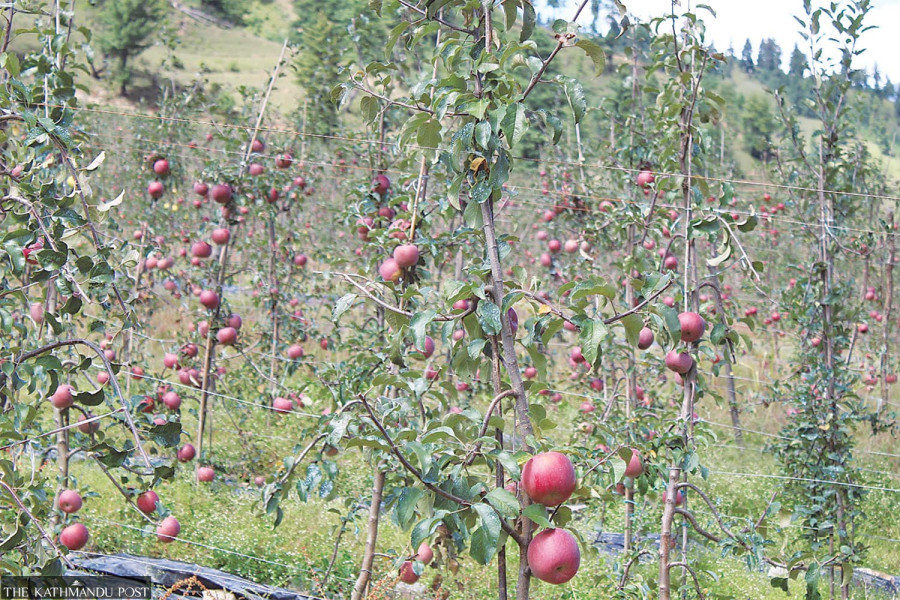Editorial
Unfruitful labour
Thousands of apple-producing families in Nepal’s mountains are struggling due to poor roads.
The mountainous regions of Nepal are famous for their succulent apples. For farmers in these areas, especially in Karnali Province, apple cultivation is their primary income source. Districts like Jumla, Humla, Kalikot and Dolpa have seen significant increases in apple production through commercial farming, with the province producing over 31,000 tonnes of the fruit last year alone. About the same quantity is expected this year. Yet, as promising as this sounds, it is disheartening that much of this produce never reaches intended markets due to the poor state of roads and other logistical challenges.
After living in the shadows for several decades, even the far-flung places of Karnali have in recent years been connected to the roads; however, these roads are unreliable as monsoon-related natural disasters often make them impassable, especially during the apple harvest season. Last year, Dolpa district produced 3,696 tonnes of apples, but only 50 tonnes reached the lowland markets. Simikot, in the same year, harvested 4,224 tonnes, but none could be taken to other places due to transportation failures. The situation in Simikot is no better this year, as vehicles have not plied these roads for over three months.
Poor roads are victimising the farmers in many ways. While the fruit is sold at Rs250 per kg in Kathmandu, farmers in Karnali’s Jubetha, for instance, get a meagre Rs45 for the same quantity. When the roads close, the price of transporting apples to lowland markets in Nepal rockets, further squeezing the farmers who are already at a disadvantage. Then come middlemen and traders, who reap the benefits of the farmers’ haplessness, charging extra to transport the apples. Seeing the fruits of their labour rot, some farmers resort to traditional store methods but still lose half of their produce. Others rely on air transport and mules, often resulting in more loss than profit.
Hundreds of families have invested their time, money and labour in commercial apple farming, which has enhanced the reputation of Nepal’s apples abroad. They deserve more state support. There is an urgent need to improve farmers’ access to logistics, including bigger-storage facilities and efficient packaging methods, in the Karnali Province in particular. It is as important to expand the scope of subsidies in transport and storage. Given the recurring road blockages on the Nepali side of the border, exploring alternative nearby markets in Tibet could also be an option. Moreover, apples can be turned into value-added products to prevent waste, extend their shelf life and sell them in local and international markets. Farmers can be trained to ferment apples to make juice and local apple raksi (apple brandy). Many farmers also air-dry or sun-dry apples to increase their shelf life. These alternative products could open up new markets and prevent waste and loss.
But above all, authorities should prioritise building disaster-resilient roads and routine maintenance to ensure year-round operation of vehicles. In regions like Karnali, it was new road access that encouraged more and more farmers to invest in apple farming. Now these same farmers feel cheated. Reliable roads won’t just boost the export of this highly-priced commodity. More importantly, they will safeguard the livelihood of thousands of families.




 25.92°C Kathmandu
25.92°C Kathmandu














